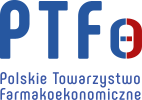From the Editors
-
Copyright
© 2016 PRO MEDICINA Foundation, Published by PRO MEDICINA Foundation
User License
The journal provides published content under the terms of the Creative Commons 4.0 Attribution-International Non-Commercial Use (CC BY-NC 4.0) license.
Authors
| Name | Affiliation | |
|---|---|---|
Karina Jahnz-Różyk |
|
Dear Colleagues,
Our new Issue features a thorough article by Yfantopoulos et al. regarding pharmaceutical reforms implemented in Greece before and during the economic crisis. Those developments are discussed with reference to Health Technology Assessment, co-payments, claw-back and e-prescribing. The imposed solutions lead to a significant reduction of pharmaceutical expenditures in Greece.
Health technology assessment (HTA) plays an important role in reimbursement decision making in Poland and its principles are similar to those used in other countries. However, specific inter-country differences, such as substantial divergence in budgetary resources, may lead to variation in actual HTA practices, e.g. in the approach to uncertainty. Panasiuk et al. in their paper present a review of the appraisal processes completed for cancer drugs by the Polish HTA agency (AOTMiT) and a comparison of the AOTMiT to the British, Australian and Canadian HTA bodies with respect to strategies of addressing crossover-related uncertainty.
We also present you an article by M. Hołownia and D. Golicki, in which they assess whether the gross domestic product based on purchasing-power-parity (GDP PPP) per capita influences the Health-Realted Quality of Life (HRQoL), measured by EQ-5D-3L questionnaire in Europe. The conclusion is that there is a strong correlation of subjective HRQoL measured by the EQ-VAS and anxiety and depression dimension with GDP PPP.
The paper by Boretska et al. is an excellent example of cooperation between Polish and Ukrainian scientists. The aim of their study was to assess a linguistic adaptation of the Thrombocytopenia Symptoms and their Impact on patients Daily Activities Assessment Vignette (TSIDAV) that was translated into Ukrainian. The translators who were involved in the process took into account the cross-cultural aspects during translation of the vignette.
Paweł Kawalec et al. shed some light on the relationship between the disease activity and both indirect costs and health-related quality of life among ulcerative colitis (UC) patients in Poland. The statistically significant difference was identified in productivity loss and health related quality of life among patients with an active disease and patients with a disease in remission.
Severe asthma is a heterogeneous disease, which, as it is now believed, requires a personalized therapy dependent on its phenotype. Omalizumab, a humanized monoclonal antibody that specifically binds to free immunoglobulin E, proved to be particularly effective in the treatment of allergic asthma. Due to high costs of this treatment, in Poland it is reimbursed under the drug program: “Omalizumab treatment of severe, allergic, IgE-dependent asthma”. The current experience shows that it significantly increases the efficacy of the therapy. On the other hand, however, it may adversely affect the possibility of treating patients who lack access to specialized centres.
Finally, we publish an article regarding the adverse effects due to improper waste management of medications. Authors suggest introducing the concept of medicine disposal around the world and creating recommendations for the proper removal of pharmaceuticals in Poland.
We hope you will enjoy this issue of Journal of Health Policy & Outcomes Research.
Sincerely,
prof. Karina Jahnz-Różyk, Editor-in-Chief
Dr Joanna Lis, Deputy Editor-in-Chief












